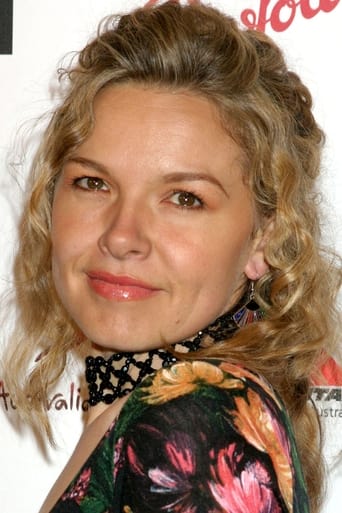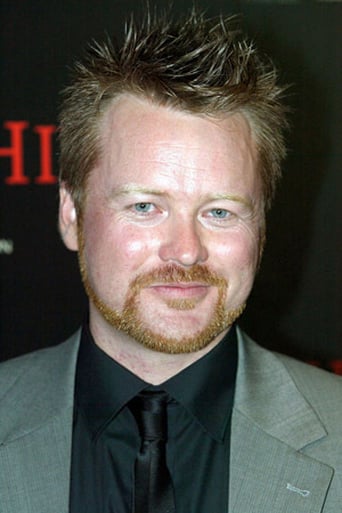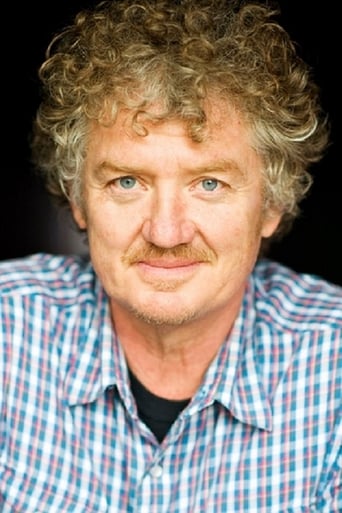brimon28
I had the great fortune of viewing this film and seeing a stage performance of Chekovs "Three Sisters" in the same weekend. It was the second time I had seen Look Both Ways. Once is usually enough for me to see a film, but Look Both Ways is eminently re-viewable. There is something new every time. Just as we can look at Three Sisters over and over again, Look Both Ways has the 'everybody is related" thread, as has Chekov's great drama. So Chekov has to be staged; it is "formal" drama. LBW is naturalistic, and the actors perform to style. Both scripts are about death - death past, and death to come. The Doctor in TS says "It doesn't matter". In LBW, it does matter, but it draws people together. Did anyone else notice that the condolence card the train driver delivered to the widow was writer/director Sarah Watt's work? The conversation is recorded as a quote at the top of this site. I love this film.
jim-371
I concur with Mia-38's comment. This is an absorbing film, tastefully executed and rewarding to watch. Death is a daily topic in all media, part of which is shown in the film by the short animated sequences. This film takes us to what happens in our lives before that final event, death. One question raised is whether a particular death is accidental or possibly suicide. It has often been said that movies are a reactive medium. This film is sparse in dialog and much is told through expressions of some really fine acting. I believe this film will become a classic with time and be honored by many critics who on review will begin to appreciate the finesse and delicate technique of its creator. Please see this film and in so doing you will support a courageous distributor and a talented movie maker. Jim
roland-104
Here's the latest entry in the "web-of-life, luck, and loss" film derby that has recently become either an overheated fashion among filmmakers or an emerging genre, depending upon how you look at it.Two things make this one more noteworthy than most of its ilk. The characters are nearly all distinctively etched, yet none is an oddball, someone cooked up merely for eccentricity's sake. And the writer-director, Sarah Watt, has succeeded brilliantly in one of the toughest tasks in film-making: representing the inner experience of people – their thoughts and fantasies – visually, cinematically, without resort to soliloquies, dialogue or voiceovers to convey such interior events.Ms. Watt has been making short animated films for over 15 years, and she uses her animation skills to great advantage in this, her first feature length, narrative movie. She concentrates her efforts toward interiority on the two most central characters (there are about a dozen altogether), and so will I. Meryl (Justine Clarke) is a water colorist by avocation. Her father died just two weeks ago. Then she witnesses a man struck dead by a passing freight train.In the wake of these events and another unconnected to her, a horrific train accident elsewhere in the country, Meryl begins to imagine brief catastrophic scenes at every turn, in which she herself dies a violent death. We are shown these flashes of vivid visual imagery, which always take the form of animated watercolor paintings, in a style like those she makes in her spare time (this is where Ms. Watts's animation skills come into play).Nick (William McInnes) is a photographer with the local paper who covers the accidental death caused by the freight train that Meryl witnessed. His father died about a year ago. And he has learned only today, the day of the accident, that he has testicular cancer. We witness his preoccupation with his condition, which, quite appropriately, takes the form of vivid colored still photos of his cancer, shown in rapid succession, and moving pictures of tumor proliferation and the like. He also begins to notice skin lesions and other evidence of abnormalities or illness in other people, and, again, we see in photographic images Nick's preoccupying fantasies about the decline of these people that he imagines.Meryl and Nick eventually become a couple near the end, though only through pure luck does one of them avoid probable sudden death. I won't wear you out by trying to recount the other characters and their stories. But they are absorbing, especially the angry, grieving partner of the man killed by the train, the devastated train engineer, and a hotheaded reporter colleague of Nick's and the two women in his life.The film is not without problems. In flashbacks, Nick's Dad talks directly into the camera to us a few times; these are unwise and disconcerting little scenes that should have been left on the editing floor. The photography is undistinguished, apart from the fantasy scenes, as is the soundtrack. That said, I think Ms. Watt has real promise as a narrative film director; she appears to work well with actors, and her own imagination shines. My grade: A- 9/10.
youngadam-4
The film had some likable aspects. Perhaps too many for my taste. It felt as though the writer/director was desperately trying to get us to feel the inner conflict of ALL of its characters. Not once, a few times...but all of the time. This is the job of television, not cinema. The location of the train station was well chosen and I enjoyed Sascha Horler's performance as the pregnant friend. I felt as though Justine Clarke's performance was wan. Her reactions to things felt forced, as though the director were trying to vocalise the themes of the film through her protagonist's expressions. I also can't believe that a director can make the wonderful Daniela Farinacci into an unbelievable presence. I cannot understand the choice of pop music slapped over entire sequences. This is a lazy device, especially where the pop music comes from no place diagetic to the film and/or where the lyrics of the song feel embarrassingly earnest. That said, there is a breezy quality about the film that evokes the Australian heat and local attitude with originality. It does create an atmosphere of heat and sunshine. Especially with the usage of wonderful animation sequences that rescue the film from complete mediocrity, infusing it with passion and hand-crafted charm. I am curious why the dialogue feels so overworked. "Who knows if there's a god? Like some guy sitting there up in the sky telling us what to do" or whatever the line was. Perhaps one of the more embarrassing moments was the friend returning home from cricket with a bunch of flowers to declare to his wife "I'm giving up smoking." An anti-smoking commercial? A TAC ad with some tasteful animation? I had to leave the cinema at the 50 minute mark -- it was all too much.



